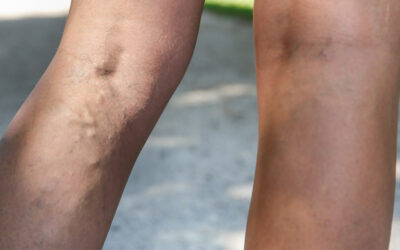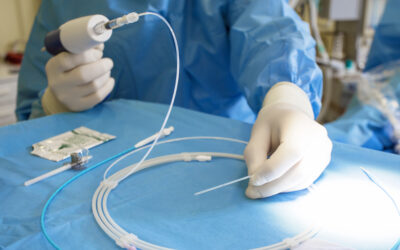AV Fistula for Dialysis
If you have chronic kidney failure and need dialysis, you’ll first have a procedure to create a permanent access to your bloodstream (called vascular access surgery). This allows for a life-saving connection to the dialysis machine, which removes any toxins and other waste from your body.
The vascular surgeons at McKenzie-Willamette Medical Center specialize in the two main types of access procedures: arteriovenous (AV) fistula and (AV) graft. Your surgeon will work closely with you and your nephrologist to decide which option is best for your long-term needs.
Learn more about AV fistula below, and be sure to see our page on AV Grafting to help understand the differences.
About the Procedure
During arteriovenous (AV) fistula surgery, your surgeon takes a piece of a vein from your arm or leg and connects it to a nearby artery with a small incision. The vein grows wider and thicker over time, allowing the largest amount of blood flow to pass through the dialysis machine.
After the procedure, it usually takes three to six months for the fistula to fully form and be ready for use. Your surgeon and nephrologist will ensure your procedure is scheduled well before you start dialysis. If your kidney disease has progressed quickly, you may need a venous catheter (thin, flexible tube) as a temporary access until your graft is placed.
AV Fistula Compared to AV Grafting
Since AV fistula uses your body’s natural tissues, it has a lower risk of infection compared to AV grafting, which uses man-made materials. Though it does take longer to “mature” for use compared to grafting, it is generally the preferred choice because it tends to have fewer problems and enables better blood flow. Grafts are typically recommended if your veins are too small for fistula.
Recovery & Follow-Up Care
AV fistula surgery is usually done on an outpatient basis with a local anesthetic and/or light sedative, allowing you to go home the same day and recover comfortably at home.
Since the access point is your lifeline, you’ll receive important instructions for cleaning and caring for it. Proper care helps ensure fewer problems with a better functioning and longer-lasting access. To help strengthen your fistula and speed healing, we may recommend exercises such as squeezing a rubber ball.
At McKenzie-Willamette Medical Center, your dedicated team is always here to answer questions and ensure your fistula is working well, so you can feel your best.
For More Information
Call 541-988-6330
Related Services and Conditions
TCAR Procedure
McKenzie-Willamette Medical Center offers a breakthrough technology called TransCarotid Artery Revascularization (TCAR) to treat patients with carotid artery disease. Although repairing the carotid artery carries a risk of stroke, TCAR is designed to minimize this...
Varicose Veins
Varicose Vein Treatment Varicose veins are not attractive, but more than that, they can be a warning sign of conditions that can endanger your health. These veins are conspicuous because of the way they bulge, swell and have a bluish tint. Varicose veins also have a...
AV Graft for Dialysis
If you have chronic kidney failure and need dialysis, you’ll first have a procedure to create a permanent access to your bloodstream (called vascular access surgery). This allows your blood to travel between your body and the dialysis machine at a high-rate, so it be...
Treatment for PAD
With the often painful symptoms of PAD, even walking can be difficult, not to mention living the active life you love. At McKenzie-Willamette Medical Center, the vascular health experts can help you start feeling like you again. We offer a full range of treatment...
Vascular Services
At McKenzie-Willamette Medical Center, vascular surgeons diagnose, treat, and manage conditions in your arteries and veins (blood vessels). These specialists treat a range of health problems, from varicose veins and ulcers to life-threatening abdominal aortic...





